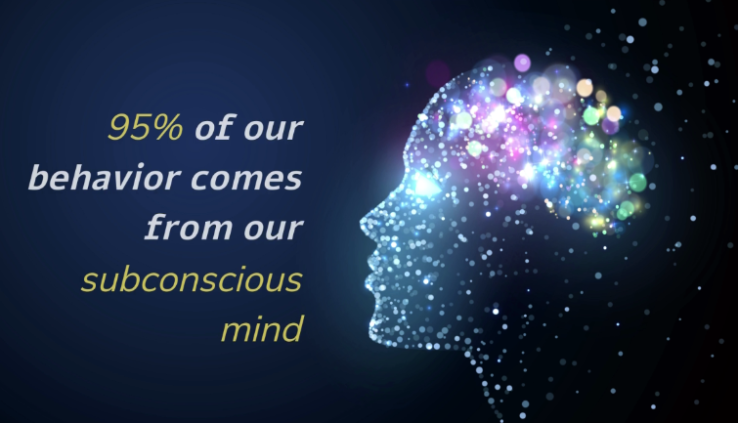Prudence in Allocating Efforts
One of your many inalienable human rights acquired when you were born is the complete freedom to choose your way of life. Along with this inborn privilege, as it is with all human freedoms, is the personal responsibility for the outcome and its unavoidable consequences. If you decide to not take responsibility for your way of life, a common selection, you’ve given up that inalienable right to others and chance. Then, beyond your control, your way of life is channeled by your obedience, compliance, and conformance to imperatives for action issued by people you don’t know who are aggressively indifferent to your personal desires. Free from responsibility for your actions, you carry on without awareness or concern for the consequences. The appropriate descriptive word is stooge.
Recognizing the paramount importance of choice-making to the quality of your life is fundamental. How you choose to spend your efforts is the hinge of your destiny.
What is also beyond dispute is that refusing to choose is a choice with unavoidable downside consequences. Random chance is a fool’s errand while trusting the ruling class to have your best interests in mind as input for its choices has no history to recommend it. Only taking personal responsibility for results finds a way and you are free to do so.
Those who choose to allow dysfunctional society to run their lives are on the wrong side of history and this website. Abandon hope.
Some background on choice-making
You just drove home from work. You won’t remember how many times you switched lanes or stopped at a traffic light. When we live on autopilot, it feels like someone else is driving, not us.
Our brains have developed an unconscious decision-making system so we can take care of routine tasks. It prevents us from overloading. However, modern life has hijacked our lives—the mechanism that is supposed to protect us is disengaging us from living.
Ninety-seven percent (97%) of people in the UK admit to making most decisions on autopilot. According to the research our minds are wandering around most of the time.
Five signs you are living on autopilot
- Your routine is predictable. Your calendar is full of repetitive activities, and you follow your plan without thinking. There’s no room for improvisation or last-minute changes.
- You are pleasing others. You let other people’s expectations define your choices. You are not paying attention to what you need.
- You are always “on.” You never pause to reflect on how you are feeling or what you are doing. You are busy, distracted, or both.
- You feel time flies. You can’t remember what you did throughout the day. You feel guilty, like you haven’t accomplished much.
- You believe you are missing out. You know you can have more joy, but you can’t help wandering around.
Living on autopilot disengages us from both our present and our future. Autopilot means leaning towards the most comfortable thinking mode, our subconscious. It is an automatic, fast, and unconscious way of thinking. It is autonomous and efficient and deceiving as well. It’s highly prone to the distortions of bias, GIGO, and repetitive errors.
In contrast, your 10% conscious mind is slow and effortful—it requires attention and glucose energy. Still it’s reliable and can triage the errors of the subconscious. It can handle complexity with logical reasoning, manage interpersonal relationships, and explicitly learn new things.
Judgment is much less stable and much noisier than most people think, while intuition feels the same whether it’s wrong or right. Hierarchies are factories of choices, decisions and judgments polluted by bias, GIGO, inherent predispositions, and white noise. Since society has no historical memory, the ruling class uses powerful emotional triggers, speaking to people’s fear and directing their insecurity towards docility.
Where do self-defeating populist beliefs come from? Why do people believe in these defective conclusions? Emotional coherence. It’s more comfortable to let life happen to you than making it happen. But if your autopilot is always on, you are preoccupied with the consequences from its bad choices.
No one can learn and do the necessaries of prudent choosing for you. Experience shows that most of those who do elect to be responsible for their way of life need some coaching in how, exactly, prudent choices are to be made. Our relationship to you is Master/Apprentice. From here forward, we take responsibility for your success. We don’t fulfill our guardianship duty to you unless you succeed.
Acting prudently takes more sagacity and energy than you can imagine. The temptation to chuck it all to the Establishment and avoid the cognitive fuss will not abate until the benefits of prudence start streaming. The payoffs are not subtle. Achievement is the reward of prudent self-discipline. When you attain your happy way of life, and you will, you will have earned it.

The Coaching begins
The level of translation one step down the logical staircase from abstract prudence towards tangibles prudence is your allocation of your efforts, cognitive and physical. It is pure creativity and invention, acts of explicit learning that only a free individual mind with free available energy can perform. The big challenge in learning about how, exactly, humans make particular and local allocations of their efforts between attention and action in their arriving future, is as complex and messy as puzzles get. It is also the keystone to a flourishing way of life for you and your social systems.
How can a deeply-flawed, opaque choice-making process of implicit learning be good for you? How can bad decisions be prudent? And, as they are not prudent, How do you avoid the flowing consequences of imprudency?
The difference between choice and decision needs clarification. As used herein, decision is the culmination of a set of choices. Decision originates from “cutting off” while choice comes from “to perceive.” To avoid losing the focus on the goal, we find that “allocation” is a safe word for describing the process that takes place to direct your efforts in the operational reality – after you decide how you wish to live. All this assumes you know you are free to choose your way of life and are responsible for its results. Autonomy is married to responsibility for results, till death do they part.
Before you decide the way of life you want for yourself, it is prudent to identify the available options. Unfortunately, you were socially conditioned to believe the only choice available to you was the one prescribed by the authorities you were born into. You were duped into giving away your freedom to choose your way of life, an inalienable human right, for a false sense of social security.
The disappearance of a sense of responsibility is the most far-reaching consequence of submission to authority. Stanley Milgram (1969)
Science has measured the proportion of the population making action choices on nobrainer “automatic” and those who follow the objective procedures of explicit learning to prepare for conscious, intelligent, risk-informed allocations of effort. In a comprehensive longitudinal British study, the results showed that 97% of the population of Great Britain is making effort-allocation choices without any knowledge whatsoever about their subconscious mental processes (implicit learning) that arrived at the choices they actually implemented. If you don’t know the allocation process that gives you your wish, your choice of how to live, your quality of life, has been made for you and it’s beyond your control.
There is a strong connection between Shannon’s laws of communication and the laws of prudent allocation (of your limited supply of energy, cognitive and physical). Both are measured as successful if the executed process attains the objective. In communication, the goal is to get the recipient target to take certain actions. In allocation, communicating within yourself, the goal is to make choices of task action that benefit you and your social systems. We automatically carry all our experience into every choice we make. Experience in choice making changes our choices. It is one of a multitude of factors that enter into the allocation of your efforts.
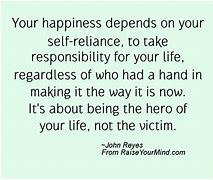
Life is all about choices
Making bad choices is the inevitable result of nobrainer intuition. It is the default automatic and it’s instant oatmeal. Making intelligent choices is study, work, diligence, wisdom. That means, whatever choice-making needs to be done, regardless of the stakes, your conscious mind takes part and that takes time. If you don’t make good choices for yourself, who will?
Taking the nobrainer route to making choices is a decision to live with the consequences of your bad choices.
Your life is the sum result of all the choices you make, both consciously and unconsciously. Your choices, every one of them, are leading you inexorably to either success or failure. If you can control the process of choosing, you can take control of all aspects of your life. You can find the freedom that comes from being in charge of yourself. Robert Foster Bennett
Our mantra that underlies all prudent choice making?
Stop! Brain ON! You have to do something else first.
After all, what is your fate but living out the consequences of the choices you make about what to think and do? Change your choices and your experience changes. Like Fermi’s paradox, why is this even a question? Why hasn’t Nature equipped us with proficient choice-making habits in our genome?
If allocation of efforts is so basic to your quality of life, why has the subject itself been so distorted, dismembered, and downplayed by society potentates? Why were you socialized to mindlessly obey the task action choices made by your rulers instead of by your own reasoning and volition? Why do otherwise intelligent people so willingly comply with this utter disregard of rationality, coherence?
The famous anthropologist Meave Leakey has recently published her assessment of the “intelligence” of Homo choice-making in her book, The sediments of Time: My Lifelong Search for the Past.
On less sanguine days, I sometimes wonder if we merit the glorious and self-congratulatory name of Homo sapiens sapiens (wise man). The remains of our extinct species might one day be discovered many million years hence and be given the alternative appellation of Homo stupidensis.
As Richard Leakey remarked to me one evening early in 2008 (discussing post election violence in Kenya), “We are most certainly the only animal that makes conscious choices that are bad for our survival as a species!”
Prudence in its pristine form has been honored as supreme virtue for four thousand years. Prudence is the human virtue requisite for all the other virtues to manifest. Where is the library of knowledge on how you actually choose where to focus your conscious mind and your physical energy today? A million books on leadership to no positive effect and nothing from the allocation sciences on prudence?
Rapid change and lagged control response
Comparing what is scientifically known about choice-making, (academia awards PhDs in decision-making), to how people actually choose, raises a fundamental question. How could it be that billions of humans and millennia of time have failed to match social conditioning of our species to the truth and significance of effort allocation, an inalienable right. What is socialization thinking? Where is it’s curiosity? The answer to that question is the theme of this page. The fact the algorithm applies generically attests to its incontrovertibility.
When you have a behavior control system that takes millennia of bad experience to modify itself and an operational reality that is changing in fundamental ways by the decade, you no longer have a functioning control system. What you have is hell on earth.
As the records of other species show, inadequate adaptation to reality always means extinction. Sooner or later a disturbance will arrive, for which your genetic endowments have no answer, that will do you and your species in. It happens in Nature continuously.
Take heed of this evidence and be extra wary of your sources for building knowledge for choice-making. There’s no such thing as freedom from the unforeseen. If you start from the assumption you’ve been duped by socialization, you’re halfway there. Get ground truth and test everything for yourself. The life of prudent effort allocation could not be more different, psychologically, than a life riding on nobrainer intuition.
Yes, prudent allocation takes a lot of cognitive effort, curiosity, and painstaking research. Is it worth the time and trouble? Well, find out.
If the current melodrama were simply a tragic-comic play, it would be amusing to watch society’s collapsing House of Cards tumbling into a disappearing sense, sensibility, responsibility, accountability, self-regard, independence, and self-determination into a technological mythological dream. As absurd as that is, this is real and is happening now.
We no longer think for ourselves but allow Google to do it for us. Indeed, Google’s search engine knows us better than we know ourselves; for like automatons we think what Google tells us to think, buy what Google tells us to buy, and believe what Google tells us is true. We can no longer depend on academics, as they are caught up in the same analytics; nor can we depend on religion and politics, as they have lost their way in the same confusion and have proven inadequate in dealing with the demands of the times. Ken Shelton 2021
Once onboard prudency, as you will experience, relapsing to loser intuition seems rather stupid, immoral, and self-defeating. Duped into giving up your curiosity? Becoming a stooge for those who would do you harm? One of the clueless 97%? It’s a black hole for your personhood.
No amount of faith in business-as-usual and its thoroughly corrupt government can bypass the essential function of prudence to social flourishing. Authority conveys only the legal right to punish honest citizens, which is hardly the hallmark of a flourishing society. Notice that authority has no corresponding legal responsibility for benefitting the people it rules.
Because of your social conditioning to blind obedience, there is no way to make progress without silence-breaking. There are many jolts awaiting you and each one will remind you about the subterfuge of the ruling class and their war on the classes they rule. Notice that the jolts are not about stuff you didn’t know, but stuff you were duped to treat as socially undiscussable (Argyris). What elephants in the room? Clench your buttocks, the bumpy ride begins. Stooge no more.
Managers who are skilled communicators are also good at covering up real problems. Chris Argyris
Prudence-driven effort allocation
We are mobile ecosystems incessantly choosing our task actions and the focus for our attention. You know the procedure you use to make choices about spending your efforts for cognition (mental) and task (physical) action, your locus of self control, is paramount to the quality of your life. Every task-action choice you make makes you.
Getting at the true scope and structure of this complex subject, however, has been a long bitter struggle. While the physical realities of earth and cosmos are identical to life in the Stone Age, social system reality has made dramatic changes. It is a bit overwhelming to realize just how far off the prudence gold standard humanity makes the choices it animates. Yes, our curiosity never flagged, but it never knew the coordinates of success to aim at. We were socialized to believe there was only one way to live, predestined. All that changed for us with the 2013 implementation of Plan B.
To not use your conscious intelligence to make choices that are beneficial to you is contrary to Darwinian survival. Because you were socialized (duped) into obedience to authority and to clan-culture conformance, you were instructed to not think for yourself. Any and all conflicts in allocation of your efforts are to be decided in favor of compliance to dominant others, i.e., do as you’re told. In one stroke, that universal injunction of human socialization eliminated your curiosity for making choices or be responsible for their consequences to others. Others are never responsible for the damage they inflict on you either.
Individual choice is by personal volition. No one can make you choose anything without your approval. Group choice is by impersonal network (group think). The group network routinely makes decisions that are opposed by every member of the group. How intelligent is that?
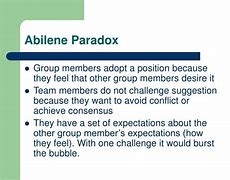
This ubiquitous psychological phenomenon is called the Abilene Paradox. How did this ridiculousness get to be the norm of species Homo sapiens sapiens behavior? Our theory is that when choice control central moves to an arena dominated the physics of networks, the outclassed individuals default to whatever the physics, assumed to be infallible, drives. That slip means the context selects.
The path of least organizational resistance couldn’t be easier. You know your place. Just look sideways and emulate your compatriots – a nobrainer. You exchange obedience for freedom of responsibility for your actions. Automatically, you’re no worse than the others. While you are not responsible for your nature, your genome, you are singularly responsible for the consequences of your choices. Who else?
You will validate that maxim when you resonate with the truth expressed herein – as more silence-breaking. Experience shows that in time, you will be thankful for the unsolicited jolts of reality knowledge to your consciousness. There is no downside to understanding and consciously participating in your choice-making process, your locus of self-control, your unbridled curiosity. You do not need permission from anyone to be curious, to think for yourself. You needn’t tell anyone about your probity in arriving at your determination.
Going from the warm philosophical master concept of prudence to the cold steel of life in the operational reality, allocation of your efforts, is a leap that only an individual brain can perform. To be prudent, there is no such thing as jumping into the uncharted waters at the first call for choosing action – even for low-stakes situations. Stopping the race to reflect must already be a habit, reflexive. There is no collective brain, no Jabba the Hut, to issue commands that pass the prudence test. Like all creative acts, the curious mind must be free to wander and muse. There is no forcing of creativity, invention. That is why, exactly, effort allocation is paramount, why it comes immediately after prudence is chosen. Without intelligence-driven task allocation, prudence is only a psalm.
Because of its paramount importance for four thousand years straight, one would think the sociotechnical platform of prudent choice-making would have been resolved millennia ago. The fact the subject matter has been deliberately suppressed by the Establishment attests to its social status significance. Subjugating the lower classes has always been the goal of the aristocracy and keeping the credulous population ignorant about their inalienable right to prudent choosing is their chief weapon against their own species.
Knowing that an unsupervised subconscious mind is your own your worst enemy, all the Establishment has to do is train you to mindless obedience. Its campaign of fear against knowledge of prudent allocation is so effective, the upper classes of society are clueless themselves. There is no simpler way to fully account for social behavior around the globe than variations on suppressed curiosity and intuitive choice-making.
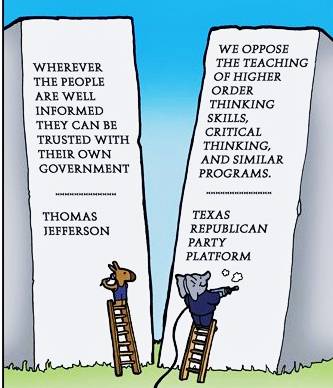
Once the idea of prudence as the supreme virtue, the enabler of all the other human virtues, takes hold, its first application is to attaining your desired way of life – the central objective. That is reached by curiosity-informed intelligence, appropriate selection. Prudence is foremost making intelligent choices of your attention and your action. Prudence is Prudentia working to answer the questions raised by your curiosity.
While prudence is a smooth, warm, and generalized concept, intelligent allocation of your efforts to fulfill the concept is a real-time Pandora’s Box. Prudence is something you can discuss in polite company while consuming wine. Effort allocation, intelligent deciding, sagacious choosing, is taken as a declaration of war on the fabric of society. That directly measures its paramount significance.
You can run a simple test of this matter yourself. Just ask your target to please explain how he makes selections of task action. Incredulous that you would even ask such a question, the responses you get from those who do not go catatonic tell you everything you need to know to measure their trustworthiness. Along the way, you will receive all sorts of irrational responses.
Is it prudent to trust a person who applies no conscious influence over his choices? One who has no curiosity over how he arrived at the choices he executed? Really?
The player on the other side is hidden from us. We know that his play (black box) is always fair, just and patient. But we also know, to our cost, that he never overlooks a mistake or makes the smallest allowance for ignorance. To a man who plays well, the highest stakes are paid, with that sort of overflowing generosity with which the strong shows delight in strength. And one who plays ill is checkmated – without haste, but without remorse. T.H. Huxley
The cognitive challenge of prudent choice-making
From the instant you’re born, your viability maintenance efforts take top priority in the subconscious mind. Some maintenance needs of yours are continuous, while others are event-driven. Your way of life is channeled by your particular allocations of effort to remain viable and curious, while at the same time you have to deal with the various intrusions of the outside world to your status quo homeostasis. All this messiness without getting yourself killed while in the process of making bad choices.
Your choices are what make you – you.
Like all brother Homos, you view the operational reality of life through your unique astigmatism. Meanwhile your social systems relentlessly coerce you to conform to their homogenized, paranoid, changeless groupthinks, increasingly disconnected from reality as time moves on. The social media, Hollywood, publishers, authoritarians, politicians, academics, parents, and philosophers all want you to see things as they would have you see them through their respective astigmatism because in that coercion they gain some personal credulity and herd security. To remain unaware of the handicaps endemic to your genetically-endowed task action allocation process, be credulous, so you can preemptively compensate for the errors they incubate, there is no possibility of avoiding bad-choices and their consequences.
Choosing what to think and do are always being tested by reality, always in tradeoffs, always in conflicts with your various interests. There are no simple, obvious choices. The steep cognitive challenge can make it tempting to throw the options already in hand against the wall and go with what sticks. For the low stakes choices, you can go with your intuition and Band-Aid consequences as you go, like 97% of everyone else. In high-stakes situations you best be curious and leave your intuition in the garage. For significant matters in crisis, choosing a course of action by the subconscious mind adds to the disaster. Examples are all around you.
Your collective self allocates your available efforts via your onboard “intelligence” systems situated in your cranium. The dynamics of the disparate information processing systems of your mind, the conscious and the unconscious, while eternally unknowable in detail, are somewhat knowable in functionality. You can’t make prudent choices without considerable and reliable knowledge about the many idiosyncratic pros and cons of your dissimilar “intelligence” systems. This knowledge has been gained by science over the last century and, in these high-stakes times, it is more essential than ever to make prudent choices. Prudence, like imprudence, must be paid for – prudence in protracted cognitive energy and imprudence in suffering streaming material consequences.
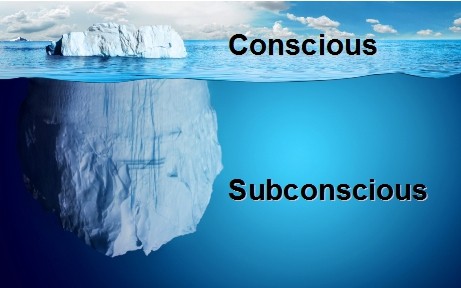
It’s not so much that you have a history of making self-defeating allocations of your energy. We all have the same history. Such records display your obedience to social norms, abandoning your autonomy and curiosity to signal social virtue at zero responsibility. The truth of the matter is 97% of the population never directed their alert cognition spotlight towards their choice-making process at all. You don’t know anyone that became curious about the anomaly. If stooge is the goal of socialization., it succeeded
Making choices via Brainiac on autopilot is not the only pathway to calamity, but it is the surest. Any effort allocation process you don’t consciously “know,” like intuition, cannot possibly navigate you towards your goals. When you realize that Brainiac is also the supreme control master of your endocrine system and your snappy choice-making system, the ridiculous track record of intuition will begin to make sense. Anyone who thinks hormones don’t directly channel human decisions isn’t married and hasn’t been paying attention to life in the operational reality.
Backward looking doctrine holds that from the same antecedents follow the same consequents. This is absolute accuracy and indisputable history. But it is not much use in a world like this, in which the same antecedents never again occur, and nothing ever happens twice. In the view of one possessed of the knowledge of contingent events, scientia simplicis intelligentiae, an omniscience of all facts, scientia visionis, is but ignorance. Whatever meets the challenges in all the experiences to date is no guarantee of meeting the challenges of the future as well. Clerk-Maxwell (1867)
The prudent allocation of human efforts is the framework for making appropriate, effective goal-seeking choices about what to do and what to think, aligned with your best interests. Since your effort is the only human functionality you control, it’s wise to make the best of it. As mentioned before, you are making selections concerning the locus of attention for your mind(s) and your task actions all day every day out of a wide spectrum of options – one best and the others not.
Conscious mental deliberations consume time and energy and your supply of available internal energy is finite. Those burdened with angst have little to no free energy to invest in their curiosity, making prudent allocations of effort impossible. Caught in a vicious cycle, the consequences from bad choices increase anxiety, bringing more bad choices. You witness this unhealthy pattern in action every day.
While your effort-selecting apparatus is and will remain unknowable, black box testing of the brain’s choice-making performance has determined it is far from a rational, risk-informed process aimed to serve your best interests. If you don’t know the gross imprudencies, biases, foibles, and blind spots inherited in your genome’s choice-making complex, you have no basis for taking effective precautions. When you leave choice-making to Brainiac, our nickname for your subconscious mind, its innate biases seal you into dysfunction. Like the 2nd Law, it is a process of progressive self-destruction.

As mentioned earlier, the global population, all classes, has little interest in knowledge about how, exactly, they make task action selections. To check this statement, just clench your buttocks and ask. Since most people resent the question itself, don’t test on your colleagues. After you confirm the claim, consider what deliberate ignorance about selection means to attaining a flourishing life. Now you know why the only incontrovertible definition of intelligence (by Ashby) is “appropriate selection.”
Making allocation choices
Experience in choosing wrong, business as usual, shows that prudent choice making encompasses a host of factors in tension that varies with the particulars of the case at hand. Because of imprudence, errors in choices are being made concerning the big things in your life, at the fundamental assumptions level. Disciplines on subconscious autopilot are making significant errors, delivering subpar performance, and sabotaging progress. Your indifferent authoritarian government makes imprudent allocations as tradition, sometimes at the cost of legions of taxpayer lives. To the upper class, these atrocities make eminent social-status sense.
The first law of prudent AE is that your choice is in setting the objective criteria of success for choosing, not the choice to be implemented. The final decision is made by measurement of the success parameters you established. Until “what done looks like” is specified, the reference standard for prudency, prudent action is impossible.
The framework for organizing choice-making factors that come in sets is by Plan A and Plan B. When you find one factor of a set, you are assured the others factors in the set are on exhibit as well. Once cognizant, you can’t help but notice the correlation.
The Plan A system synchronized factors
Local
- Undiscussables, elephants, virtue signaling, history
- Not outcome responsible
- Impersonalization
- Contractors
- The golden rule
- Inalienable rights denied
- Ca’canny response
- Involuntary
- Brainiac intuition on autopilot
- Centisecond decision cycle giveaway
- Context: physical, psychological, and social (A)
- Anxiety, fear, biases, blind spots, insecurity
- Urgency, crisis, danger, conflict
- The 2½ Rule
- Oblivious to the 2nd Law
- Distrust-based transactions
- Negative reciprocity
General
- Social status by authority, domination by fear
- Government, the media, big-business corruption
- Corporate policy, regulatory law
- Direct orders from the authorities
- Groupthink, locus of group control
- POSIWID mismatch between say and do
- Hindsight exclusive
- Lessons from relevant history
- Turnover: 36% cutoff
- High octane testosterone, zero oxytocin
- GIGO
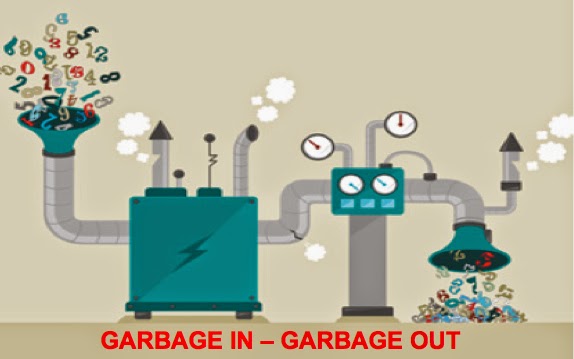
To date, human history has shown no exception towards GIGO. Nobody yet has plugged fiction into the processing unit and delivered prudent choices out. It is beyond AI. Neural networks using trial and error, can get you to workable interpretations, but they are not Ashby intelligent.
The Plan B system synchronized factors
Local
- High stakes
- Goal specification, what “done” looks like
- Requisite Variety
- Franceschi Fitting
- Risk assessment, tradeoffs
- Trust
- Got your act together
- Inalienable rights
- The square deal
- Transparency
- Cooperation
- Collaboration
- Humor
- Personalization
- Inalienable rights
- Rogerian triad
- The platinum rule
- Volunteers
- Curiosity encouraged
- Outcome self-responsibility
- Knowledge and information AQI “quality”
- Inside the 2½ Rule
- Foresight, dynamic simulations, model testing, RBF
- Hindsight, lessons learned
- Humor, antidote to biases
General
- Social status by performance
- Your act together
- Low angst
- Competent with prudence protocols
- Curiosity-driven
- Self confident
- POSIWID aligned
- Setting the mean for Regression to the mean
- Both minds with conscious mind having veto power
- Low testosterone, oxytocin surges, dopamine
- Time-delayed positive reciprocity

The Outsider’s case against society is very clear. All men and women have these dangerous unnamable impulses, yet they keep up a pretense, to themselves, to others. Their respectability, their philosophy, their religion, are all attempts to gloss over, to make look civilized and rational something that is savage, unorganized, irrational. He is an Outside because he stands for Truth . . . C. O. Wilson
Commentary
Some scholars argue that the reason imprudent allocation of attention and effort is the norm in our society is because that’s the way the Establishment wants it. Responsible, goal-seeking intelligence is perforce antithetical to obedience to authority (OTA). To be prudent, you have to be free to choose among options while you determine the best by evidence. Punishing the exercise of curiosity and intelligence is extortion, plain, simple, and ubiquitous, an authoritarian crime.
As intelligence is “appropriate selection,” it is impossible to make prudent choices without cognitive cooperation. She has been characterized as lazy, but our experience suggest what appears as laziness is really fear-driven. She knows acting with intelligence will certainly threaten her social standing.
Meanwhile, social conditioning is intentionally designed to punish you for being curious and using your intelligence. “No citizen in good standing with his collective is using his intelligence to guide his actions and neither should you!” “Trust me.”
Grossly ill-informed reasoning from your subconscious selects the path of least effort, devoid of curiosity and probity, leaving your conscious mind out of the requisite deliberations and tradeoffs altogether. The choice-making cycle by intuition runs in a centisecond, leaving no time for fact gathering and verification. The perpetrator doesn’t ring a wakeup bell in your conscious mind when he has made a choice. Responding to your subconscious-driven teleprompter, you ride off in any and all directions it posts. Meanwhile, your conscious mind remains indifferent and clueless about why you’re doing what you’re doing. When things run amok, he has a ready, plausible narrative to defend himself from the consequences of his imprudence – previously composed and stored for future reference within the same centisecond.
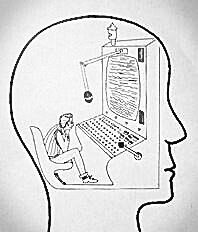
Returning to consciousness reality, there is no real reason to suffer bad choices. There is always outrageous fortune, to be sure, but there is no excuse for making bad choices because you didn’t perform the cognitive necessaries for making, at worst, satisfactory choices. Of course you are in charge of your fate. When control of your happiness is your compelling purpose, you can override your GIGO brain and your fearful brain and let them both know who’s boss. That’s how we got to Plan B. That it took a half-century to do so, is humbling.
The problem with leaving allocation to Brainiac is that his choice-making engine is loaded with a fictitious, distorted mental model of reality, a giant memory bank full of fantasy and dozens of genetically-embedded biases, any one of them capable of delivering a regrettable choice all by itself. What does Brainiac do when you don’t comply with his imperatives? Yes, he sends in his flying-monkey hormones to put you on track to fail. That’s why GIGO-factory Brainiac is notoriously and dependably credulous.
Anything that distorts the operational reality going into choice deliberations is setting up biased choices that will degrade goal-seeking effectiveness. There is a direct connection between the relevance and the quality of knowledge in making unbiased choices. Fiction from any source is garbage going in. To think that garbage won’t come out? Nobody wins anything with GIGO., except eternal distrust.
Prudentia’s snake warns that she is endowed with biases as well. The key distinguishing difference is that Prudentia is capable of recognizing biases and rationality compensating for them. There are proven procedures in risk assessment, for example, that expose biases as errors. One fact-gathering exercise called “Penetrations,” adapted from from nuclear power projects, makes believers in prudent risk management out of every participant. Even Prudentia gets religion.
How do I know what I think before I hear what I say? Rudolf Starkermann
Side note:
When you confront Brainiac with incontrovertible proof of his imprudent choices, and he has no ready, plausible story to defend himself, he instantly goes catatonic. The truth is that anyone can learn how to demonstrate this psychosocial phenomenon on any target. The demonstration itself takes less than three minutes to complete. One tried and true example starts by announcing that Plan B exists.
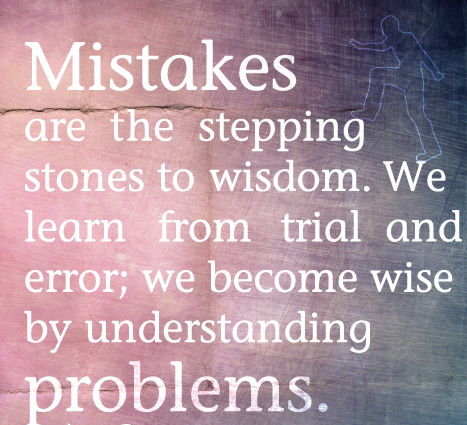
NEXT
Views: 125


